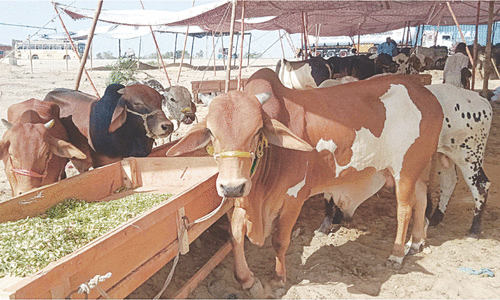
NEW DELHI: US Defense Secretary Leon Panetta encouraged India to play a “more active role” in Afghanistan during talks Tuesday in New Delhi, US officials said.
Washington has previously worried about India antagonising its arch-foe Pakistan and preferred New Delhi retain a modest profile in the Afghan conflict, restricted to troop training and infrastructure development.
But officials briefing reporters before Panetta arrived on a two-day visit to New Delhi said US policy has evolved as the Nato-led force prepares to withdraw combat troops by the end of 2014.
“Over the last 10 years, for a variety of reasons, India has not played a particularly active role in Afghanistan,” a senior defence official, who spoke on condition of anonymity, told reporters aboard Panetta's plane.
“We welcome India playing a more active role in Afghanistan, a more active political and economic role,” the official said, adding that the US hoped India would expand its training of Afghan security forces.
India has “trained army and police before but on a relatively small scale.”Panetta discussed the issue, as well as a new US strategic tilt towards Asia and expanding military ties, when he met Prime Minister Manmohan Singh and National Security Adviser Shiv Shankar Menon on Tuesday, officials said.
“In both meetings, Secretary Panetta discussed the US rebalance to the Asia-Pacific region and the importance the United States places on India,” his spokesman George Little said in a statement.
In October, India and Afghanistan signed a “strategic partnership” deal aiming at deepening their security and economic links, with Afghan President Hamid Karzai also keen to elevate India's involvement.
New Delhi, fearful of the return of an Islamist regime in Kabul, has ploughed about $2.0 billion of aid into the country to gain influence, but is extremely wary of over-stepping.
The US official acknowledged the hostility and distrust between India and Pakistan, but said both countries had a common interest in seeing peace take root in Afghanistan.
Shashank Joshi, an expert on South Asia security and an associate fellow at the London-based think-tank Royal United Services Institute, said the Indians are afraid of what will happen once Nato combat troops pull out in 2014.
“They are convinced the Afghan state is more brittle than the Americans and the British think and fear they will end up picking up the pieces with the jihadis heading east and their interests in danger,” he told AFP.
The suggestion India bolster its presence in Afghanistan might be an attempt by Washington to press Pakistan to open its border to Nato supply convoys, which Islamabad has blocked since a US air strike in November killed 24 Pakistani soldiers.
The United States has had to rely since then on a more costly, cumbersome route to the north through Central Asia.
Any enhanced role for India would alarm Islamabad, which views New Delhi's activities in Afghanistan with deep suspicion, fearing India could effectively encircle Pakistan through its proxies.
Panetta, who was due to deliver a speech here on Wednesday, flew to India after a stop in Vietnam as part of a nine-day tour of Asia designed to underscore a US “pivot” to Asia after a decade of war in Iraq and Afghanistan.
The emphasis on the Asia-Pacific partly reflects a growing rivalry between China and the United States, with the Americans worried that Beijing could eventually dominate the crossroads of the global economy — the South China Sea.













































Dear visitor, the comments section is undergoing an overhaul and will return soon.